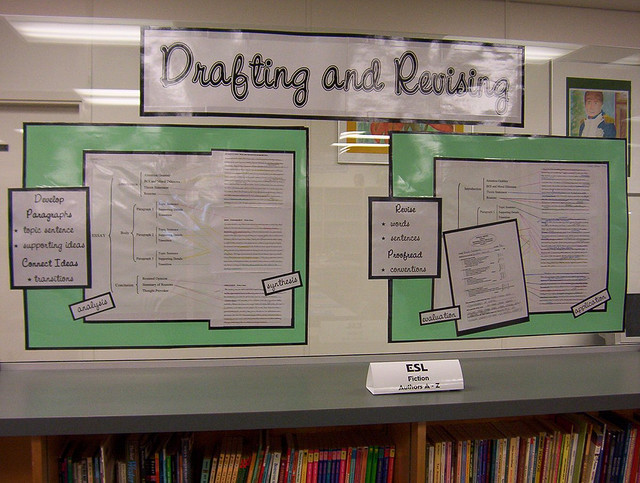Recording the Writing Process: Teaching Revision 17
This is a continuation of my posts on teaching revision. There are more revision prompts (not specific to flash fiction) here and in previous posts. If you’d like to contribute a guest post or response, please contact me at m [dot] salesses [at gmail etc.].
–
Why don’t we talk more about process in the writing workshop? Why are we so focused on product?
I suspect that one reason, beyond “it’s always been done this way,” is that it’s easier. Perhaps this is a product of New Criticism. Maybe we think it’s kinder to separate the author from the work, the process from the product. We can criticize the word choice, rather than the–as a friend put it recently–“system of intelligence” that led to the choice in the first place.
Recently I was watching (because of my love for bad and emotional Kpop variety shows) a YouTube video of an established girl group walking an aspiring group through the dance moves for a song the established group had released. There were two interesting things here for me (other than the utter desire for fame and attention that makes these shows popcornable). One that the established group had recorded the aspiring group’s dance and were playing the video a few frames at a time, stopping and starting and pointing out and correcting tiny mistakes. And two that the instruction was not only technical, but emotional: how to deal with, control, and express emotion on stage and at various key points in the song.
Last week I had my fiction workshop students record themselves writing through a prompt. They were supposed to make three five-minute recordings using a screen-capture program called Jing and post them to our Google Drive. During class, we asked questions about why they paused at certain moments and what they were thinking, and they tried to walk us through exactly what their thought process was (or was not) at any second of the writing.
This was incredibly illuminating to me, whether or not it was illuminating to them (I think it was). I felt that I understood who they were as writers far more intimately than I could by looking at their product on the page. I also felt that I could give concrete advice on their process, such as not going back so often to correct spelling errors, that would be helpful to them as they wrote, rather than in evaluating their writing.
I’m sure both are valuable, but I’m also sure we spend much more time teaching writing students how to evaluate their writing and others’ writing than we spend on teaching them how to improve their actual writing process.
One of the ways this blog has changed how I teach writing is through a greater focus on workshopping the process of writing than workshopping the work, and through a greater awareness of how much we hide the fact that workshopping the work really is workshopping the process, as much as we might try to distinguish the author from the page.
More on this to come, perhaps. But for now, are there other ways you’ve tried to get across and discuss process with your CW students?

